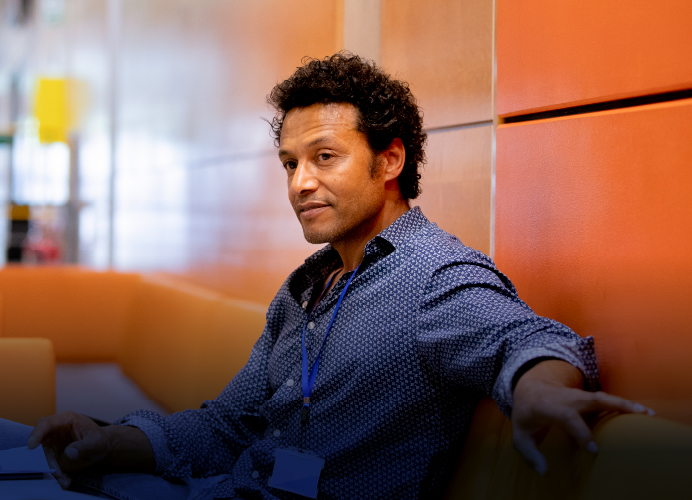QILT SES results: the challenge of low learner engagement, and the importance of personal safety

Insights.
The latest QILT Student Experience Survey (SES) results brought both positive and negative news for the Australian tertiary education sector. On the positive side, the university student experience in Australia has started to improve. On the not-so-positive side, more work is needed to lift learner engagement.
But why is learner engagement consistently low, and why are international students less satisfied than domestic students?
The Quality Indicators for Learning and Teaching (QILT) survey, administered annually since 2012, assesses the overall learning experience, student engagement, and resources available to students across all 42 Australian universities, and across 97 non-university higher education institutions (NUHEIs), for a total of 139 institutions.
The good news was that the 2021 survey measured improvements across all focus areas, as institutions managed year two of a global pandemic. Overall student satisfaction rose from 69 per cent in 2020 to 73 per cent in 2021. However, this was still markedly lower than the pre-2020 overall satisfaction range of 78 to 80 per cent. Ratings across the survey have not returned to levels recorded before COVID-19, which indicates that the unprecedented disruption caused by the pandemic was still having a measurable impact on the student learning experience at the time of the survey.
The challenge of low student engagement
One survey focus area that remains low is learner engagement. After falling 16 percentage points in 2020, national student ratings of learner engagement only regained five percentage points (to 49 per cent) in the latest survey.
There is still a considerable difference between this score and the (also low) 58 to 60 per cent range recorded between 2012-2018. Why are higher education institutions finding it difficult to engage students?
The answer may lie in the questionnaire items that sit behind these numbers.
To determine learner engagement ratings, QILT asked students questions about their level of interaction with their peers – online and face-to-face – as part of their study, as well as outside their learning requirements. The questionnaire also asked students to what extent they had a sense of belonging to their institution during the survey year. Only 42 per cent responded positively.
The same number of undergraduate students (42 per cent) rated the item, “Had a sense of belonging to your institution” positively, a three per cent drop from 2020.
Yet, even before the pandemic, student ratings relating to a sense of belonging were relatively low. In 2019, half (52 per cent) of the students surveyed rated this positively.

Academic research demonstrates that a sense of belonging is essential for student retention, academic motivation, and a successful overall student experience. The fact that less than half of the surveyed students felt a sense of belonging serves to highlight the difficulties that universities, particularly larger institutions, face in delivering a personalised learner experience at scale.
Growth in both the size and diversity of student cohorts – as well as the recent integration of less immersive study formats – require new strategies to foster a sense of social connectedness, as well as an increased focus on resources that support student wellbeing.

International student experience
In the international report for the latest SES survey, results suggested that international students were less satisfied than domestic students. Whilst their experience improved, a substantial rating gap existed between international and domestic students.
Scores from both cohorts increased by four percentage points in 2021, but the rating from domestic students (74 per cent) was still considerably higher than ratings from international students (67 per cent).
Has unsympathetic treatment of foreign students during the pandemic caused an ongoing negative sentiment towards Australia’s (high-value) international students? And have international students been so “disproportionately impoverished” due to the pandemic that they are holding negative views about Australia?
In addition to the latest SES results, a study by international education organisation IDP found that the international students’ perception of Australia for educational quality and value for money has declined compared to key competitor nations.
The SES results indicate that international students in Australia were left worse off financially during the pandemic. The proportion of international undergraduate students reporting that their study had been negatively impacted by their financial circumstances, living arrangements, and/or paid work commitments increased markedly in 2020. While this number has decreased somewhat in 2021, it is still higher than levels reported before 2020 and substantially higher than those reported by domestic students.

The reality of international students needing to pay much higher tuition fees than domestic students has put extra pressure on international student cohorts. Anxiety about their jobs and income has also been exacerbated in cases where their families back home have suffered reduced incomes due to the pandemic.
In our October 2021 video discussion with Belle Lim, who at the time of recording was the National President of the Council of International Students Australia (CISA), she explained:
“During COVID, I know personally of students whose families have lost income back home and through no fault of their own, they’re all of a sudden facing this situation where their entire education and life here in Australia are in jeopardy. There’s also, you know, this element that students feel guilty that they’re spending a large amount of family savings on their education.”
—Belle Lim
October 2021, National President of the Council of International Students Australia (CISA)
Of the top five source countries (China, India, Nepal, Vietnam and Malaysia), Malaysian students rated the quality of their entire educational experience the lowest. Their score declined by 16 percentage points from 2019 to 2020 but only regained two percentage points in 2021. This score was also eight percentage points lower than the combined result for all international students.
At the other end of the spectrum, 71 per cent of Indian students rated the quality of their entire educational experience positively in 2021. This score was the highest across the top five source countries.

While students from most source countries generally rated aspects of their living experience highly, there was some variation.
Chinese students rated their overall living experience slightly less favourably, with a score of 90 per cent compared with 93 per cent for all international undergraduate students. Other aspects of living experience that Chinese students rated lower than other international students included improving English skills (86 per cent), transport (71 per cent), and making friends (77 per cent).
Making friends, and transport, were rated lowest in terms of living experience in Australia by all international students, at 81 per cent. This score seems to back up anecdotal reports that the pandemic’s lockdowns made for a lonely experience for international undergraduates studying in Australia.

The importance of personal safety
International students (perhaps influenced by their parents, who are important decision makers in international undergraduate program choices) cited personal safety and security as the most important reason for studying in Australia, with 96 per cent rating this aspect as extremely important or important.
When in Australia, international students rated personal safety on and off campus highly at 97 per cent and 91 per cent, respectively.
That said, Belle Lim noted:
“We did observe a rise in racist comments and reports to us and recently we ran a survey from students that told us about, you know, their experiences. We have students from Asian countries like myself feeling like we are being targeted. And they avoid going to the supermarket because they get yelled at and saying it’s their fault. And there are also things like students actively avoiding interacting with strangers in anticipation of this kind of behaviour – leading to social withdrawal. So, here are, you know, some of the issues that we knew initially, but it has been amplified [due to the COVID-19 pandemic].”
—Belle Lim
October 2021, National President of the Council of International Students Australia (CISA)
Where to from here?
In the wake of the pandemic, students are sending a clear message that higher education institutions must enhance student learning experiences to maintain Australia’s reputation as a top study-abroad destination.
As a result of pressure on the federal government to help improve the student experience, Federal Education Minister Jason Clare has indicated that the Government’s planned Australian Universities Accord will look at “everything from funding and access to affordability, transparency, regulation, [and] employment conditions”.
Meanwhile, Federal Home Affairs Minister Clare O’Neil has announced a significant extension of post-study work rights for international students, in a bid to “strengthen the pipeline of skilled labour” and boost Australia’s competitiveness as a top study destination. Under the changes, the federal government will increase by two years the post-study work rights for international students who graduate from Australian universities in areas of verified skills shortages. The federal government has also extended the temporary relaxation of student visa work-hour restrictions to 30 June 2023.
For Australian university leaders, the SES results present a compelling argument to ensure adequate resourcing for student wellbeing support services in order to meet the expectations and needs of their diverse and growing student cohorts, and boost their ability to attract and retain domestic and international students.
Want to know more?
We invite you to read some of our latest university sector insights here:
For more information on how Sonder can help you to improve your student experience rates, we invite you to contact us here.
About Sonder
Sonder is an Active Care technology company that helps organisations improve the wellbeing of their people so they perform at their best. Our mobile app provides immediate, 24/7 support from a team of safety, medical, and mental health professionals - plus onsite help for time-sensitive scenarios. Accredited by the Australian Council on Healthcare Standards (ACHS), our platform gives leaders the insights they need to act on tomorrow's wellbeing challenges today.
Related posts
There's so much more to share
Sonder is reimagining health, safety and wellbeing support. Sonder proves human centric care leads to earlier intervention. Sonder impacts one person at a time to drive meaningful change across an organisation. Sonder understands people and how to support them.






